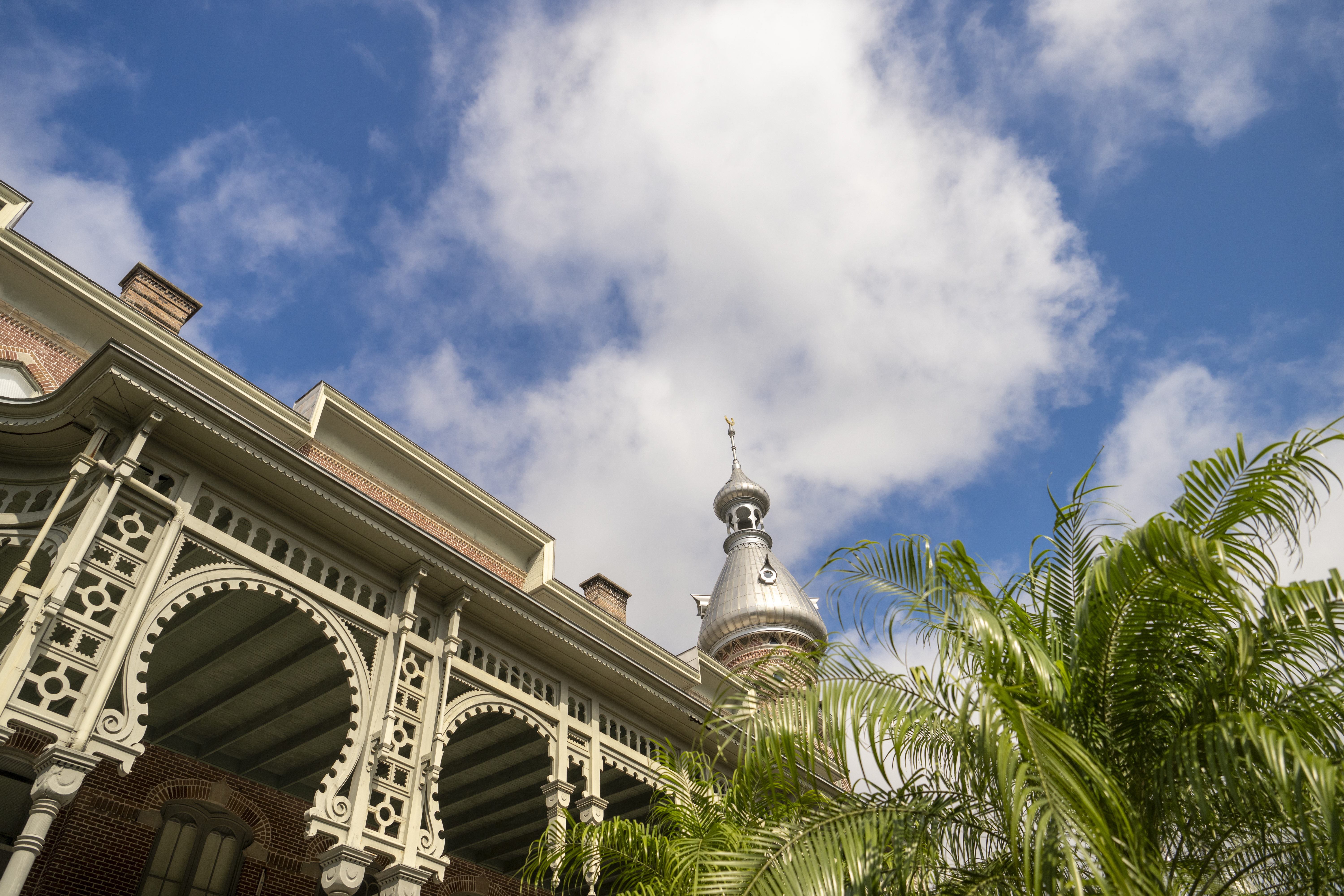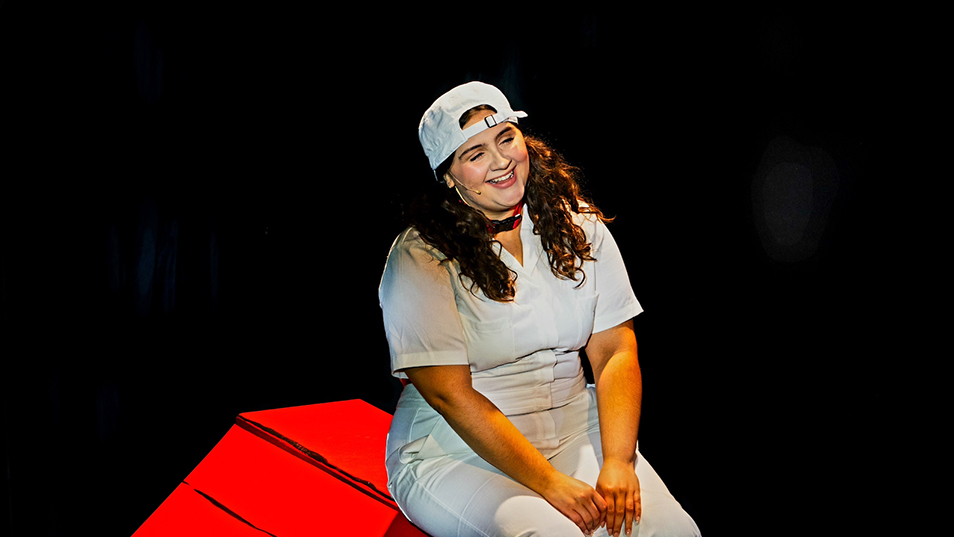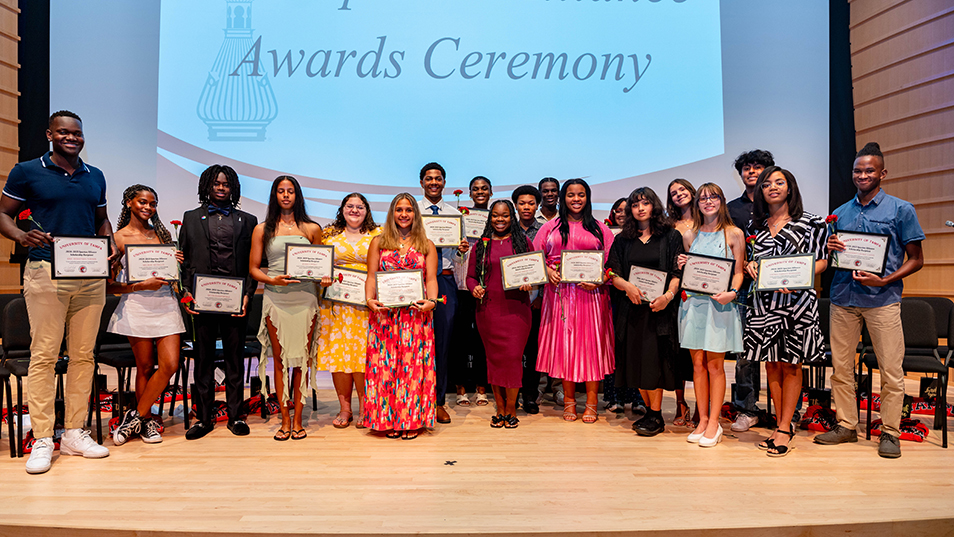UT Junior Returns Home to Help Heal Haiti
It was the first time Marco Duverseau ’12 had been back to his home country of Haiti since the January earthquake.
This summer he saw firsthand what wasn’t there anymore.
“There is telling yourself that you are ready, and then there is actually seeing it,” Duverseau said. “It was shocking.”
He saw the rubble and the emptiness. And then he got to work, helping his father, Harvel Duverseau, an orthopedic surgeon, tend to those still recovering. Harvel Durverseau and Marco’s mother, Guerea Coicou, an anesthesiologist, have been helping treat the wounded since the earthquake occurred.
Duverseau, a pre-medicine biochemistry major, worked alongside his dad repairing the quick-fixes employed by triage teams during the chaos, such as the casting of broken bones that were now infected and needing re-treating. The two worked at the Chaine de l’Espoir, run by an international nongovernmental organization.
“We’d get 50 patients a day including 10 operations,” said Duverseau, who would arrive at 8 a.m. to a line of people waiting in the street. “During the day the time would fly by. It’d make you feel good that you were able to help.”
The experience will help him stand out in the competitive medical school application process, but that isn’t what compelled him to lend a hand.
“I saw all the buildings crushed and would hear about and remember the people who died, and I’d get a boost,” said Duverseau who just wanted to help. “It made me want to be a doctor sooner.”
Ellyn Bender, UT’s chemistry laboratory coordinator and lecturer, is Duverseau’s advisor who encouraged him to take advantage of the rare and unique opportunity to work with an experienced physician who was operating under less than ideal conditions.
“Given those facts, I thought he would likely be exposed to more medicine than he could ever get in the U.S. volunteering at Tampa General or the like,” Bender said. “He had a chance to help his country, to work with his father and to see what it really means to practice medicine.”
On his return, Duverseau submitted a reflection paper on his experience, something that inspired Bender.
“I believe that Marco’s experience will make us all feel good about who we are as members of this University. I also believe that it may stir other UT students to action who might otherwise feel that the effort to do something like this, anywhere in the world, is beyond them,” Bender said. “Marco has been inspired. His story will inspire all of us.”
Duverseau said he is one of the lucky few to get his hands in a hospital before attending medical school. It’s an experience that has stoked his passion for medicine. For Bender, she hopes he’s a better physician because of it.
“I don’t know his future plans, what he will specialize in and whether he intends one day to return to Haiti, but working under the sub-optimal conditions that exist now in Port-au- Prince at least exposed him to the extent of human need in his own country,” Bender said. “I hope it inspires him to continue paying back to society the gifts and talents that he has. And, of course, that it will continue to inspire him to be the best darn doctor that he can be.”
Jamie Pilarczyk, Web Writer
Sign up for UT Web Alerts
This summer he saw firsthand what wasn’t there anymore.
“There is telling yourself that you are ready, and then there is actually seeing it,” Duverseau said. “It was shocking.”
He saw the rubble and the emptiness. And then he got to work, helping his father, Harvel Duverseau, an orthopedic surgeon, tend to those still recovering. Harvel Durverseau and Marco’s mother, Guerea Coicou, an anesthesiologist, have been helping treat the wounded since the earthquake occurred.
Duverseau, a pre-medicine biochemistry major, worked alongside his dad repairing the quick-fixes employed by triage teams during the chaos, such as the casting of broken bones that were now infected and needing re-treating. The two worked at the Chaine de l’Espoir, run by an international nongovernmental organization.
“We’d get 50 patients a day including 10 operations,” said Duverseau, who would arrive at 8 a.m. to a line of people waiting in the street. “During the day the time would fly by. It’d make you feel good that you were able to help.”
The experience will help him stand out in the competitive medical school application process, but that isn’t what compelled him to lend a hand.
“I saw all the buildings crushed and would hear about and remember the people who died, and I’d get a boost,” said Duverseau who just wanted to help. “It made me want to be a doctor sooner.”
Ellyn Bender, UT’s chemistry laboratory coordinator and lecturer, is Duverseau’s advisor who encouraged him to take advantage of the rare and unique opportunity to work with an experienced physician who was operating under less than ideal conditions.
“Given those facts, I thought he would likely be exposed to more medicine than he could ever get in the U.S. volunteering at Tampa General or the like,” Bender said. “He had a chance to help his country, to work with his father and to see what it really means to practice medicine.”
On his return, Duverseau submitted a reflection paper on his experience, something that inspired Bender.
“I believe that Marco’s experience will make us all feel good about who we are as members of this University. I also believe that it may stir other UT students to action who might otherwise feel that the effort to do something like this, anywhere in the world, is beyond them,” Bender said. “Marco has been inspired. His story will inspire all of us.”
Duverseau said he is one of the lucky few to get his hands in a hospital before attending medical school. It’s an experience that has stoked his passion for medicine. For Bender, she hopes he’s a better physician because of it.
“I don’t know his future plans, what he will specialize in and whether he intends one day to return to Haiti, but working under the sub-optimal conditions that exist now in Port-au- Prince at least exposed him to the extent of human need in his own country,” Bender said. “I hope it inspires him to continue paying back to society the gifts and talents that he has. And, of course, that it will continue to inspire him to be the best darn doctor that he can be.”
Jamie Pilarczyk, Web Writer
Sign up for UT Web Alerts
More UT News




